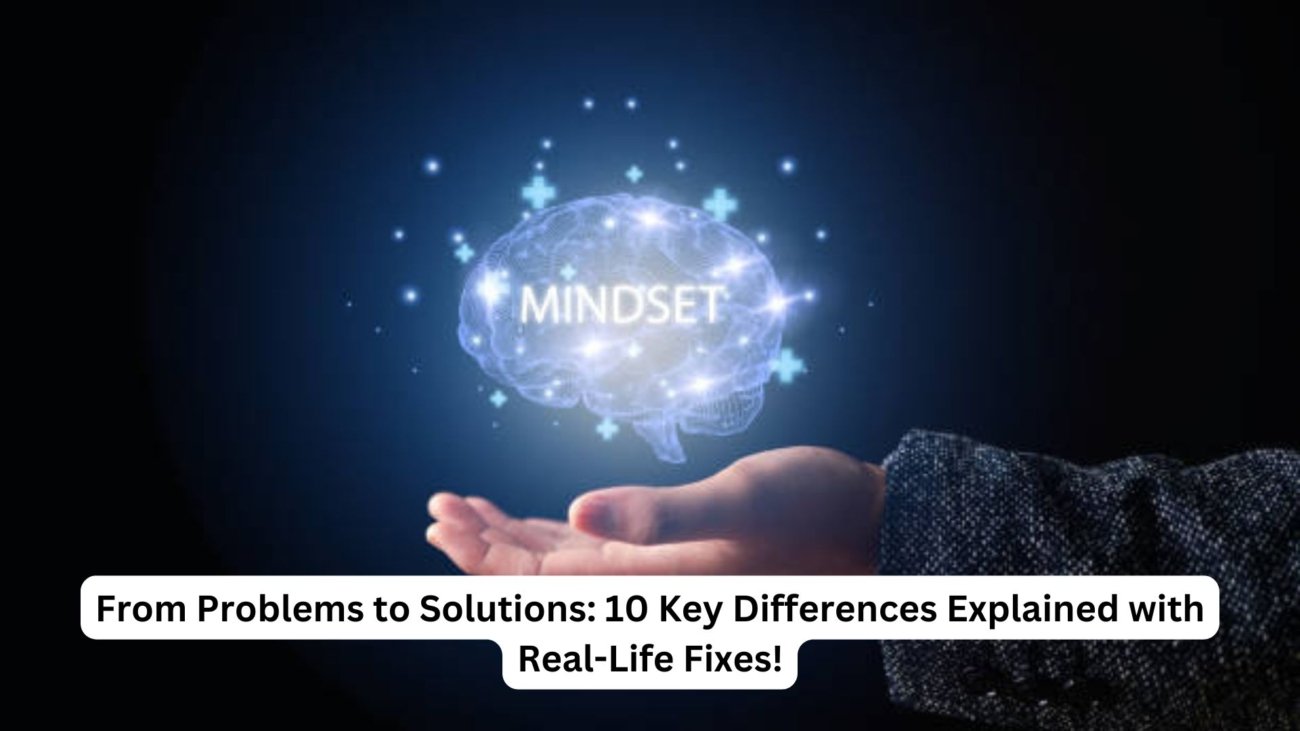
Life, business, and daily decision-making revolve around problems and solutions.
A Problem is an obstacle that creates difficulty or uncertainty, whereas a solution is the method or approach to overcoming that obstacle.
Understanding the key differences between them helps individuals and businesses navigate challenges effectively.
1. Definition
- Problem: A difficulty or challenge that hinders progress and needs to be resolved.
- Solution: The method, plan, or strategy used to overcome the difficulty and achieve a positive outcome.
Example:
- Problem: A company is losing customers due to poor customer service.
- Solution: Train employees on customer service skills, implement feedback mechanisms, and use AI chatbots for faster responses.
2. Cause vs. Outcome
- Problem: Represents the cause of discomfort or inefficiency.
- Solution: Represents the desired outcome or the process of resolving the issue.
Example:
- Problem: Employees are frequently missing deadlines.
- Solution: Implement project management tools like Trello or Asana to track progress and set realistic deadlines.
3. Identification vs. Implementation
- Problem: Needs to be identified and analyzed to understand its root cause.
- Solution: Needs to be implemented to address the identified issue.
Example:
- Problem: An e-commerce website experiences high cart abandonment rates.
- Solution: Improve the checkout process by reducing steps, offering multiple payment options, and providing real-time support.
4. Negative vs. Positive Impact
- Problem: Often results in negative consequences, such as stress, inefficiency, or financial loss.
- Solution: Brings positive change, efficiency, and growth.
Example:
- Problem: A student struggles with poor time management.
- Solution: Develop a study timetable, prioritize tasks, and use time management apps like Pomodoro timers.
5. Uncertainty vs. Clarity
- Problem: Creates confusion and uncertainty about the next steps.
- Solution: Provides clarity and direction.
Example:
- Problem: A startup is struggling to attract investors.
- Solution: Create a compelling business pitch, showcase financial projections, and network with potential investors.
6. Reaction vs. Action
- Problem: Often leads to frustration, worry, or overreaction.
- Solution: Encourages proactive and strategic action.
Example:
- Problem: Traffic congestion increases commute times for employees.
- Solution: Implement remote work policies and flexible office hours to reduce peak-hour congestion.
7. Complexity vs. Simplification
- Problem: Can be complex, involving multiple factors that make it difficult to resolve.
- Solution: Simplifies the issue by breaking it down and addressing key areas.
Example:
- Problem: A restaurant receives negative reviews due to slow service.
- Solution: Hire additional staff, introduce a digital ordering system, and optimize kitchen workflows.
8. Resistance vs. Adaptability
- Problem: Can lead to resistance to change or fear of the unknown.
- Solution: Encourages adaptability and innovation.
Example:
- Problem: A traditional retail business struggles to compete with online stores.
- Solution: Launch an e-commerce platform, offer home delivery, and utilize digital marketing strategies.
9. Loss vs. Gain
- Problem: Often leads to losses, such as wasted time, financial setbacks, or emotional stress.
- Solution: Creates gains by improving efficiency, increasing profits, or enhancing well-being.
Example:
- Problem: A factory faces high production costs.
- Solution: Automate processes, negotiate with suppliers for better rates, and reduce waste to cut costs.
10. Temporary vs. Permanent Resolution
- Problem: If not addressed properly, it may persist or reoccur.
- Solution: A well-planned solution provides a permanent fix and prevents future issues.
Example:
- Problem: A town experiences frequent water shortages.
- Solution: Build water reservoirs, promote rainwater harvesting, and implement water conservation measures.


купить диплом о высшем образовании недорого